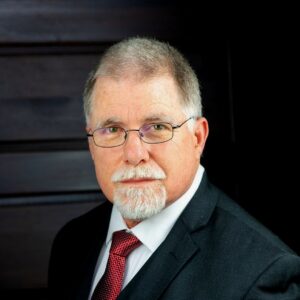| Date: | Time |
|---|---|
| 29-March-2023 | 16:00 (4:00 pm) PST |
| 29-March-2023 | 19:00 (7:00 pm) EST |
| 30-March-2023 | 00:00 (00:00 ) GMT |
| 30-March-2023 | 02:00 (02:00 am) SAST |
| 30-March-2023 | 12:00 (12:00 pm) NZST |
Speaker – Dr. John R. Black
Topic – Thinking about thinking
Abstract
This presentation is about thinking or thinking about thinking. As examiners and experts, one of our primary jobs is making sense of something and then offering an opinion or conclusion. This is shorthand version of the sensemaking– decision-making (SM-DM) paradigm, where SM is the seeking of understanding and DM is how we decide or conclude. Arguably, if our sensemaking is flawed, our decision-making would also likely be flawed. But how often do we examine that which precedes the decision; how do we make sense of the world?
How do our frames, mental model, and cognitive shortcuts work for or against what we are trying to accomplish? How do our procedures potentially change our perceptions and actions? Can an objective truth/reality coexist with multiple subjective perceptions/truths about the same event or an examination? Can experts truly remove implicit bias? These important questions will serve as a framework for Dr. Black’s one-hour discussion. The goal of this discussion is a conversation…a conversation among ourselves about our thinking.
Dr. Black uses several models and framing mechanisms (the four truths model, alternative hypothesis-abductive thinking, and the choice of the sensemaking frame vs. solution-centric) to have a conversation and explore ways to create a richer understanding during an examination. He will build on the work of Itiel Dror and others, showing how humans (regardless of being an expert or novice) are subject to thinking patterns that may be beneficial or detrimental depending on the situation.
Examples of alternative thinking strategies/frameworks and the value of thinking about improving our own thinking will also be discussed. A handout will be provided after the presentation with relevant links and references so that attendees can continue exploring these ideas independently.
Bio
 Dr. John R. Black (DBA) is the President of Aragon National Inc. He is a nationally recognized expert witness in police practices, Officer Involved Shootings (OiS), police training, corrections UoF, and self-defense issues. Dr. Black regularly presents at internationally recognized conferences about concepts such as framing, complexity, systems thinking, and sensemaking-decision making (SM-DM) paradigms related to policing. He is a certified Force Science Advanced force specialist and InputAce/Axon Video Analyst at the Examiner and Metrological levels.
Dr. John R. Black (DBA) is the President of Aragon National Inc. He is a nationally recognized expert witness in police practices, Officer Involved Shootings (OiS), police training, corrections UoF, and self-defense issues. Dr. Black regularly presents at internationally recognized conferences about concepts such as framing, complexity, systems thinking, and sensemaking-decision making (SM-DM) paradigms related to policing. He is a certified Force Science Advanced force specialist and InputAce/Axon Video Analyst at the Examiner and Metrological levels.
His doctoral work concentrated on how people take and use visual information when making decisions in the business world. He has taken his study of human thinking in systems (a Masters in Homeland defense with an emphasis on counterterrorism) and expanded the idea of using a systems thinking approach to understand how we look at decision making after the decision and, more importantly, that which precedes the decision. He is currently enrolled in his second Master’s degree (Psychology), studying this question from a cognitive and philosophical perspective. His proposed framework addresses the influence of Human Factors, Schema, and mental models as they culminate in a decision choice or architecture. He is a certified system thinking trainer from the Cabrera Research labs at Cornell University and has completed the Cynefin Basecamp hosted by Cognitive Edge.
His 23+ years of law enforcement experience include command level (Patrol, Investigations, Corrections, & Training) along with specialty areas including mental health response and long-term strategies, crisis negotiations, intelligence teams, mobile response teams, Use of force (UoF) reporting, policy, and accountability. He is a prior Senior instructor for defensive tactics, firearms, CQB, small unit tactics, and force simulation. He has advanced training and involvement with sensitive administrative reviews involving UoF and officer misconduct.
A retired SGM from the US Army Special Forces Community with 30+ years of expertise in military special operations (US Army Special Forces, Civil Affairs, Psychological Operations) and National level operations. He is a prior Senior trainer, instructor, and mentor in subject areas ranging from small unit tactics, firearms, special operations, critical thinking, leadership, intelligence analysis, and decision making.
Our understanding and ability to comprehend are based on our own mental models, schema, and thinking. As experts in any field, we are affected by our thinking—examining another’s thinking—in the light of hindsight and often comparing a known outcome to a desired one (Objective, Subjective, Normative, Deductive, Inductive, Abductive all rolled into one). I believe the research space of sensemaking/decision-making/insight generation is dynamic. It is a blend of objective quantitative dimensions combined with the qualitative human-in-the-loop experience, perception, knowledge, human factors, heuristics, and bias (good and bad).
This space of insight that precedes and determines one’s choice on which they act (from a system thinking and complexity framework) is a critically needed understanding that any person investigating an event must recognize and incorporate into their thinking. To do that, we must go back to the most overarching frames and questions. How can I understand what happened, and how does my thinking affect it?
